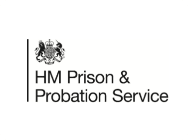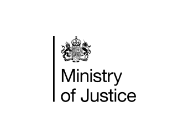The rules around procurement have changed.
For Board members it means challenging your organisations in new ways to make sure you are alive to the risks and making the most of the opportunities the new Procurement Act 2023 will bring.
In this briefing, Gwen Beeken, Managing Lead at Procure Plus, sets out what you need to know about the Act and the questions you should be asking your teams.
What is the new Procurement Act all about?
Before the new Act, public procurement was predominantly legislated using four pieces of law that derived from the UK’s former membership of the EU. There were separate pieces of law for general goods, works and services, defence, utilities and concession contracts. The Procurement Act 2023, which came into force in February 2025, consolidates these multiple regulations into a single legal instrument. It focuses on value for money, public benefit, transparency and integrity.
The Act covers contracts awarded by government departments, ALMOs, local government and health authorities, universities, schools, social housing organisations, police and fire brigades, and utility companies, in England, Wales and Northern Ireland.
Its aims are to:
- Create a simpler, more flexible system.
- Open up public procurement so smaller organisations such as SMEs and social enterprises can compete public contracts.
- Take tougher action on poor performing suppliers.
- Ensure transparency so people can see where public money is being spent.
What are the main points of the Act?
- The new rules apply when public sector organisations buy goods, services or works — but only if the contract is worth more than a certain amount, known as the threshold, which are set out in the Act.
- From 24 February 2024, any new procurement must follow the rules of the Act. If a procurement and contract was already in progress before then, it can continue under the rules that applied at the point the procurement began.
- A new central digital platform (CDP) has been created for suppliers to register and store their details so that they can be used for multiple bids, and where all UK contracting authorities will publish information relating to procurement required by the Act. The platform is an enhancement of the existing Find A Tender service.
- Compliance with the Act by the public sector will (within constraints) be overseen by the Procurement Review Unit (PRU). If a supplier thinks a contract has been awarded unfairly, they can raise concerns with the PRU.
What will social housing organisations have to do differently?
- Review and refine. The change gives organisations an opportunity to review current processes rather than starting again from scratch. Many of the new obligations align with practices the housing sector has already been working towards, such as engaging SMEs, ensuring value for money and delivering public benefit.
- Consider the wider impact. Housing associations will now need to consider what they value, such as community and environment, as well as the cost and service. This means making sure contracts are clear on these requirements and how they align with their organisation’s values.
- Encourage learning. Staff, suppliers and stakeholders will need to understand procurement policies, processes and decisions, such as keeping more detailed records, when to post notices to the central platform and what information to share publicly.
- Check processes. There are clearer rules on payment deadlines and performance monitoring. This means that procurement, finance and operations teams will need to check their processes to ensure they follow the rules and meet the new standards.
- Allow time for it to embed. The Act should save time for suppliers by making the selection stage of a procurement processes more efficient. There will inevitably be increased admin in this initial setting-up period, and smaller suppliers not used to working with the public sector might find this a challenge.
How can Boards help?
- Recognise the cultural shift that needs to take place. Procurement teams might see this as a chance to have more control, while operational teams could view it as extra red tape. The key is working together to get the best results, particularly because the Act is clear that procurement includes the management of a contract and not just the process to procure it. Encouraging teams to think differently and challenge traditional ways of working will be important.
- With budgets under pressure, innovation is crucial – and through the use of value and transparency, the Act provides a framework to support this.
- Keep track of procurement activity. This is essential for financial oversight and strategic decision-making. Boards should request an annual review of outcomes, comparing outturn against what was purchased against planned budgets and priorities. This review should highlight any patterns, risks and opportunities for improvement. If spending doesn’t align with strategic goals, adjustments may be needed to ensure future procurement decisions support long-term objectives. The requirement for KPIs on contracts above £5m in value will help inform this, but would be good practice for all levels of spend.
- Understand what value means for your organisation. Value isn’t just about cost—it includes social, environmental and ethical considerations. Boards should ensure that procurement decisions reflect these priorities consistently. This might involve setting clear criteria for evaluating suppliers, monitoring how contracts deliver social value and reviewing case studies of successful procurement that have benefited communities. Regular discussion on what value means in practice will help ensure alignment with the organisation’s mission and long-term impact.
- Check on training and support. Check your organisation’s staff and suppliers fully understand the rules of the Act. Regular updates, training sessions, and clear guidance should be provided. It’s also important to check whether the messaging has been effective—this could be done through feedback surveys, discussions with key teams, or identifying any misunderstandings or challenges that need to be addressed. If gaps are found, further communication and support may be needed.
- Judge success at the end of the contract – did it deliver what was promised? Looking at the final results will help to improve future procurement decisions.
5 Where can I get more information?
Check out the dedicated pages on our website for more detail Procurement Act 2023 – Procure Plus.
See the government’s information pages Transforming Public Procurement – GOV.UK
Need help, advice or support?
Call us right now on:
Alternatively, schedule a call or meeting with one of our team
We have a team of experts ready and waiting to talk you through any queries you have, whether you’re a new or existing customer.






